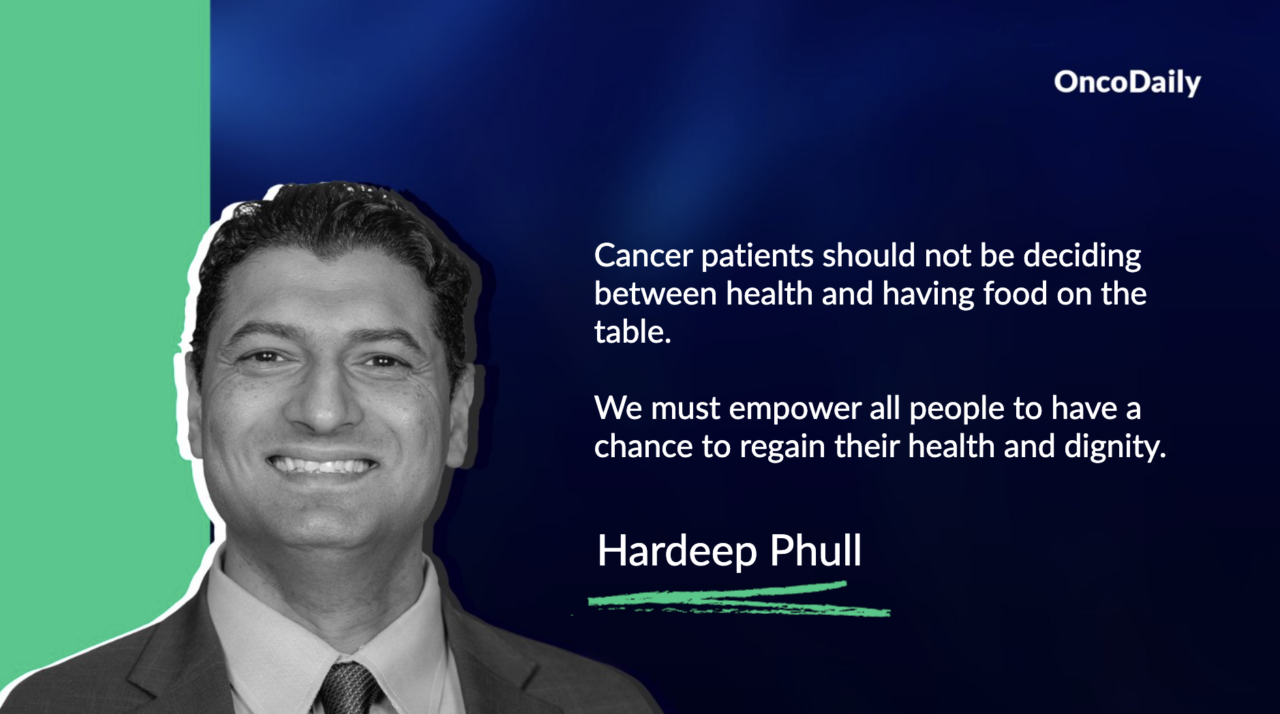“A recent article in the Wall Street Journal really hit home for many of us who provide cancer care. Indeed, as an oncologist, I often talk to patients about treatment risks and toxicity of the therapy they are about to embark on.
However, in the last few years, I have started to devote just as much time to potential financial toxicity. This is a topic that is often ignored and even stigmatized, to the point that some patients even feel embarrassed to bring it up with their doctors.
Therefore, our team has become accustomed to broaching this topic with empathy and compassion, helping patients get financial assistance in the midst of feeling already overwhelmed, vulnerable, and scared from their cancer diagnosis.
Sadly, many accept financial toxicity as the norm, not realizing that deciding between health and having a roof over their heads or food on the table should not be a given.
The Grim Facts
• 1 in 12 adults in the U.S. owes medical $220B total)
• 3 million people owe more than $10,000
• More common in those with low/middle income, no health insurance, and poor health/disability
• To compensate, 70% cut spending on essentials including food and clothing, 60% use up their savings or retirement, 40% take on extra jobs, 37% borrow money from friends/family, 33% increase credit card usage, and 20% change living situations.
• Many risk bankruptcy, foreclosure, and homelessness
• Many do not know or have access to financial advisors or resources to understand THEIR RIGHTS along with KEY CONCEPTS:
1) Reviewing bills in an accurate/timely manner
2) Not being afraid to ask for adjustments/negotiations of lower prices
3) Seeking fair repayment plans
4) Prioritizing and consolidating debts
5) Not hesitating to seek unbiased help
It is a vicious, generational cycle.
• These individuals are more likely to skip/delay care
• Perpetual, worsening health and debt over time
• Compounding unfavorable loans, credit card interest, paycheck advances
• Generational cycle that is hard to contain, breaking apart families
• Individuals delay career development and opportunities to break free
• Severe mental health impact: 60% develop disorders including substance abuse or addiction, and 42% have damage to their self-worth.
Though not directly about cancer, I can’t think of a better example of the reality of financial toxicity in healthcare than Hilary Swank’s recent movie “Ordinary Angels.”
Set in Louisville in the 1990s, it stars a struggling alcoholic and hairdresser, Sharon Stevens, who finds purpose in helping a widow, Ed Schmitt, raise money for his daughter Michelle’s medical bills. Due to Michelle’s biliary atresia requiring a liver transplant and her father’s lack of health insurance, the family racks up hundreds of thousands of dollars in medical bills.
Though it was a “feel good” movie about the power of community and the human spirit which I highly recommend watching, with many tear-jerking and heart-warming moments, the underlying theme was very disheartening. Frankly, very few have the fortune of a relentless advocate, much less the knowledge or resources to have a fighting chance.
Therefore, we must empower all people to have a chance to regain their health and dignity, by fixing gaps in care and health-related costs. Essentially, we must make this extraordinary Hollywood tale one day seem nothing more than the ordinary for cancer patients and for all patients.”
by Hardeep Phull
Dr. Hardeep Phull is the Director of Oncology at Palomar Health, the Alumni Specialty Director at the Cleveland Clinic Lerner College of Medicine, and a Clinical Instructor at the University of California San Diego.
He views his ongoing journey in medicine as a series of experiences that have enabled him to appreciate different values, cultures, and viewpoints, keeping him grounded and highly involved in education, mentorship, leadership, and advocacy in the community.
He is frequently referenced on social media, television, newspapers, and podcasts related to these interests, and remains committed to his initial calling to be a compassionate and caring clinician, advocating for deeply-rooted principles of empathy, humility, dignity, and empowerment towards his patients and colleagues.


